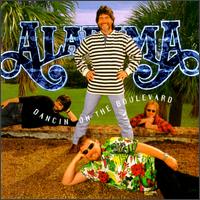This page is based on this
Wikipedia article Text is available under the
CC BY-SA 4.0 license; additional terms may apply.
Images, videos and audio are available under their respective licenses.

A yeoman was a member of a social class in England and the United States. It is also a military term.
Brazil is the largest country in both South America and Latin America.
Speed is the rate of motion, change, or activity.

Baron Reith, of Stonehaven in the County of Kincardine, is a title in the Peerage of the United Kingdom. It was created in 1940 for Sir John Reith, the first Director-General of the BBC. His only son, the second Baron, disclaimed the peerage for life in 1972. Since 2016, the title is held by the latter's son, the third Baron.

Granola is a breakfast food and snack food consisting of rolled oats, nuts, honey or other sweeteners such as brown sugar, and sometimes puffed rice, that is usually baked until it is crisp, toasted and golden brown. During the baking process, the mixture is stirred to maintain a loose breakfast cereal consistency. Dried fruit, such as raisins and dates, and confections such as chocolate are sometimes added. Granola, particularly if it includes flax seeds, is often used to improve digestion. Granola is often eaten in combination with yogurt, honey, fresh fruit, milk or other forms of cereal. It also serves as a topping for various pastries, desserts or ice cream.
Frederick Alton Jewell, was a prolific musical composer who wrote over 100 marches and screamers, including:
Henry Atkinson was a United States army officer. He was a native of Person County, North Carolina.
In real estate, a landed property or landed estate is a property that generates income for the owner without the owner having to do the actual work of the estate. In medieval Western Europe, there were two competing systems of landed property, on one hand manoralism, inherited from the Roman villa system, where a large estate is owned by the Lord of the Manor and
leased to tenants, and on the other hand the family farm or Hof owned by and heritable within a commoner family, inherited from Germanic law.
Walford's County Families is the short title of a work, partly social register, partly "Who's Who", which was produced in Britain in the 19th and 20th centuries, initially under the editorship of Edward Walford. It served as a guide or handbook to the British upper classes and landed gentry. Its coverage encompassed many of the most important rich, aristocratic or politically powerful of the people of the period, thereby serving to document to an extent the "cream of society", sometimes referred to loosely as Britain's upper ten thousand.

Burke's Landed Gentry is a reference work listing families in Great Britain and Ireland who have owned rural estates. The work has been in existence from the first half of the 19th century, and was founded by John Burke. He and successors from the Burke family, and others since, have written in it on genealogy and heraldry relating to gentry families. It has evolved alongside Burke's Peerage, Baronetage & Knightage.

Dancin' on the Boulevard is the seventeenth studio album by country music band Alabama, released in 1997 by RCA Records. It includes the singles "Dancin, Shaggin' on the Boulevard", "Sad Lookin' Moon," "She's Got That Look in Her Eyes" and "Of Course I'm Alright". Also included on the album are cover versions of The Temptations' "My Girl" and Bruce Channel's "Hey! Baby".

Richard Gentry was an American politician and military officer who died during the Seminole Wars. The Missouri county of Gentry is named for him. He was the first mayor and founder of Columbia, Missouri.

The American gentry were members of the American upper classes, particularly early in the settlement of the United States.
The term Landed gentry usually refers to a privileged social class in the United Kingdom.












